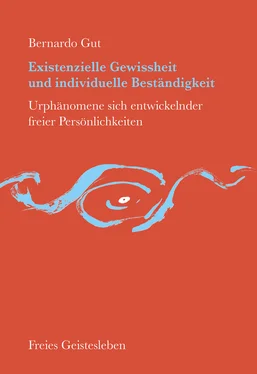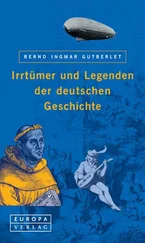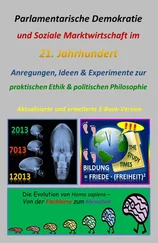Die vier Postulate umschreiben also die fundamentalen Kennzeichen eines Menschen, der als werdende Persönlichkeit die sich entfaltende und wandelnde Rechtssphäre mitzugestalten berufen ist. Die Forderungen erweisen sich als unabhängig von jeder Gruppenkategorie und zeichnen sich so als übergeordnete Rechtsprinzipien freier Individuen aus. Sie ersetzen die positive Gesetzgebung nicht, stellen aber Leitgedanken dar, die nur dann Bedeutung erlangen, wenn jeder Einzelne, der sie anzuerkennen vermag, sie im Diskurs vertritt, sie verteidigt, seine eigene Handlungsweise nach ihnen ausrichtet. –
1Vgl. Urphänomene der Rechtssphäre I, S. 11-35.
2Vgl. Urphänomene der Rechtssphäre I, S. 17.
3Reinach, A., Sämtliche Werke. Textkritische Ausgabe in 2 Bänden, herausgegeben von K. Schuhmann und B. Smith. – München (u.a.): Philosophia, 1989.
4Vgl. Corbin, «Foreword», S. VIII, in Hohfeld, Wesley Newcomb: Fundamental Legal Conceptions. Arthur Corbin (ed.). – Westport, Conn.: Greenwood Press, 1978.
5Hohfeld, Wesley Newcomb: Fundamental Legal Conceptions as Applied in Judicial Reasoning. And Other Legal Essays. Ed. by Walter Wheeler Cook. – New Haven: Yale University Press, 1923. S. 35 ff.
6Vgl. Nino, Carlos Santiago: Introducción al análisis del derecho. – Buenos Aires: Astrea, 1993, 6. Aufl. S. 208. – Siehe auch: Arthur L. Corbin, «Legal Analysis and Terminology», in The Yale Law Journal, Vol. 29, No. 2, 1919, 163–173. (1919), der die strenge terminologische Klärung ausarbeitet und an einfachen Beispielen veranschaulicht; ferner Nyquist, C., «Teaching Wesley Hohfeld’s Theory of Legal Relations», in Journal of Legal Education, Volume 52, Numbers 1 and 2 (March / June 2002), p. 238–257. Nyquist legt ebenfalls an mehreren Beispielen dar, wie mit Hohfelds Ansatz die logischen Zusammenhänge klar hervortreten. Corbin und Nyquist zeigen, wie bedeutsam diese begriffliche Klärung für die Ausbildung der Juristen ist.
7Berman, Harold J., Law and Revolution. The Formation of the Western Legal Tradition. – Cambridge, Mass.: Harvard U.P., 1983. S. 80.
8Berman, S. 80.
9Heraklit, Fragmente. Griechisch und Deutsch. Hrsg. von Bruno Snell. – Darmstadt: Wissenschaftliche Buchgesellschaft, 1976, 6. Aufl. S. 18. – Ferner: Mansfeld, Jaap und Oliver Primavesi (Hrsg.): Die Vorsokratiker. Griechisch / Deutsch. – Stuttgart: Philipp Reclam jun., 2011. S. 265.
10Arendt, Hannah: «Es gibt nur ein einziges Menschenrecht», in Die Wandlung, 1949, 4. Jg., 8. Heft, S. 754–770. S. 760.
11Anregungen für das Folgende verdanke ich folgenden Schriften: Bollnow, Otto Friedrich: Das Wesen der Stimmungen. – Frankfurt am Main: Klostermann, 1988, 7. Aufl.; Brentano, Franz: Psychologie vom empirischen Standpunkt. Bd. I–III. – Hamburg: Meiner, 1973 (Bd. I, 3. Aufl.), 1971 (Bd. II, 2. Aufl.), 1974 (Bd. III, 2. Aufl.); Steiner, Rudolf: Von Seelenrätseln. – Dornach: R. Steiner Verlag, 1983, 5. Aufl.- Bezüglich der begrifflichen Differenzierungen, vgl. Gut, B., Die Verbindlichkeit frei gesetzter Intentionen. – Stuttgart: Freies Geistesleben, 1990. S. 129 ff.
12Nino, Carlos Santiago: The Ethics of Human Rights. – Oxford: Clarendon, 1991. S. 3 f.
13Nino, 1991, S. 129 ff.
URPHÄNOMENE DER RECHTSSPHÄRE III
Die Idee einer Gesamtheit 1freier, selbständiger Einzelner
El sueño de la razón produce monstruos.
F. de Goya (1746–1828): Caprichos.
Der Schlaf des Verstandes erzeugt Ungeheuer.
1.In the following Abstract, I will give a succinct summary of the main subjects dealt with in The Idea of an Aggregate (or, in a larger view: Totality ) of Free, Independent Individuals. –
As early as the 7 thCentury BC, we perceive in Ancient Greece a slowly increasing zeal to encourage chosen individual human beings to confide in their innate, latent drive to liberate themselves of family and group-bounds, and to become independent personalities. A telling testimony to this delicate, hazardous adventure is an appeal by Heraclitus (ca. 550 BC – ca. 480 BC), who in one of his fragments simply exhorts: One ought not to act as child of his parents. This demand to cherish one’s personal independency and dignity is a major concern in classical tragedies by Aeschylus (e.g. Prometheus ) and Sophocles (e.g. Antigone ). The appeal to the individual is paramount in the Gospel of St. Matthew (10, 34 f.), where Christ says: «Think not that I am come to send peace on earth … I came not to send peace on earth, but a sword. For I am come to set a man at variance against his father, and the daughter against her mother …» – And in the Gospel of St. John, Christ encourages his disciples, appealing to them as individualities, not as a collective, closed group: «And ye shall know the truth, and the truth shall make you free.» (St. J., 8, 32). And again: «I call you not servants … I have called you friends …» (St. J., 15,15). The disciples are looked upon as being independent personalities.
2.Independently of the afore mentioned hints in classic tragedies and in founding texts of the Christian religion towards a growing awareness of personal dignity – there was a comparable quest among the Ancient Greek philosophers to understand the essence of Individuality. It was eventually Plotinus (ca. 205 AD – ca. 270), who was the first to introduce the term Ego in philosophical reasoning, and who – in Ennead V,7 – ventured to tentatively consider the existence of separate individual, perennial ideas in every human individual.
3.This hopeful, encouraging advance – at the outset of our common era – towards a definite acknowledgement of the dignity and inviolability of the independent human individual came to a premature stop, as soon as a hierarchically organised, authoritarian «Christian Church» established itself with its dogmatic intolerance. A turning point was the persecution of Pelagius (ca. 350–430) by Augustin of Hippo (354–430). It set in motion a campaign against heretics , independent individuals who searched their own way of life and would neither bend nor conform to the uniform doctrine and commands imposed by the mighty Christian (Catholic) Church. This persecution of independent, free-thinking individuals continued for more than a thousand years. Unfortunately, groups of heretics that managed to evade being harassed, who survived, subsequently initiating new, strictly organised religious movements with new temples often tended to treat their own «new-heretics» in ways which hardly differed from what the founders of their «New-Churches» had experienced from the representants of the «Old-Church».
4.With the outbreak of the French Revolution 1789, started a dramatic debate with the aim to introduce fundamental individual human rights in newly devised Constitutions and Charts. After several attempts, severe drawbacks, terror-regimes, two World Wars, the United Nations was finally able, on the 10 thDecember 1949, to proclaim the Universal Declaration of Human Rights , which declares in Art. 1: «All human beings are born free and equal in dignity and rights. They are endowed with reason and conscience and should act towards one another in a spirit of brotherhood.» Art. 2 underlines that it is Everyone [the Individual] who is entitled to all the rights and freedoms [liberties]. And Art. 20, 2 proclaims: «No one may be compelled to belong to an association.»This clear formulation is crucial for the dignity and the defence of the claim-rights and liberties of the individual.
Читать дальше












